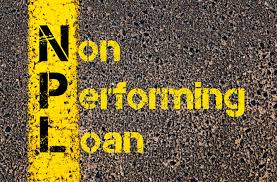A cross-section of views from leading banking experts have hailed what they described as the pseudo postponement of a rainy day on issues bordering on nonperforming loans in banks.
Observers say the policy summersault in view of COVID-19 and falling oil prices by the Central Bank of Nigeria (CBN) to grant additional one-year to all intervention loan under moratorium would have a positive impact on banking operations, as they will not need to classify the loans as non-performing.
However, the experts further argued that this is time for banks to be at the forefront of the regulatory forbearance action as they are expected to provide some form of extension for credit facilities that may have been affected by the impact of covid-19.
Bankers who barred their minds on the policy announcement said the extension on moratorium would reduce the stress, which would have come from paying off these; loans and the expected interest at a time business are under pressure.
According to them, extending the moratorium would enable business managers to re-strategise while the business environment recovers, which would ultimately help to reduce the risk of a possible default on loan repayment.
In a telephone interview, the Head, FSL Securities Limited, Victor Chiazor, said “By extending the moratorium, it gives businesses enough time to re-strategize and for the business environment to recover thereby reducing the risk of a possible default on loan repayment
“On its regulatory forbearance, the banks are expected to be in the front line of these actions as they are now expected to somehow provide some form of extension for credit facilities that may have been affected by the impact of covid-19.
“This in other words means some credit position that may have been significantly provided for or classified as non-performing may be granted more time to make payment on their loan obligation as a result of the global shock currently being experienced.
Chiazor further averred that “The CBN is also determined to maintain its stance on further strengthening the loan to deposit ratio in a bid to improve credit to the real sector and further drive economic activities as it believes this action remains one of the major catalyst to drive economic growth outside other monetary and fiscal policies,” he said.
In his remarks, finance analyst and CEO of Cowry Asset Management, Johnson Chukwu noted that “What CBN is trying to do is to give people some level of confidence. It is a positive action plan to support the economy but the modalities in implementing it is the challenge.”
While pointing out that “The modalities on interest rate reduction may be more complex to implement. This is because; it is a contractual agreement with banks and the customers,” Chukwu averred that “In, as much as the reduction in interest rate payment period will give some relieve to the borrowers, there must be risk sharing agreement for the banks to assist willingly.”
Recall that the CBN had based on the joint impacts of oil price fall and COVID-19 to announce reduction of interests rate on its intervention loans from nine per cent to five per cent, as well as, an extension of moratorium from one to two years, to buffer the Nigerian economy.
According to the apex bank boss, Mr Godwin Emefiele, the policy change is the very first set of response to the oil price fall and covid-19 pandemic, which has adversely affected businesses in many sectors in Nigeria and across the world









